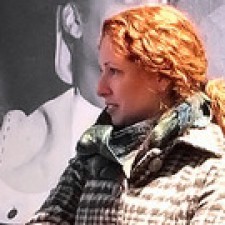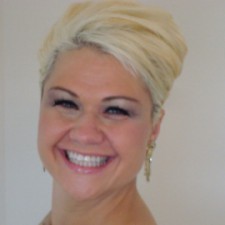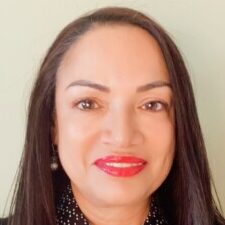Discussion:
You must be logged in to reply to this topic.
- 3 Rules to Spark Learning
-
January 26, 2017 at 4:09 pm #40999

Prof. Karen GoodladParticipantThe Living Lab General Education Seminar has proven to be a time of great growth and learning for many, and a time to embrace our curiosity. Let’s start sharing our visions of our classrooms as a Living Laboratory now by viewing this TED Talk and sharing our thoughts of how we can all inspire our students:
What makes YOU curious?
What do YOU bring to your classroom to spark learning among our students?
-
This topic was modified 6 years, 3 months ago by
 Prof. Karen Goodlad.
Prof. Karen Goodlad.
January 30, 2017 at 2:09 pm #41117
Alyssa Dana AdomaitisParticipantAsk questions rather than just disseminate information.
Ask opinions of students……as we learn from them.
Engage students being pro-active and have an experiential learning classroom.February 8, 2017 at 10:34 pm #41568
Jesse RickeParticipantHello Everyone, Glad to be a part of these discussions
I agree most heatedly with Ramsey’s call to “embrace the mess.” I often use trial and error and risk taking in my classroom, often allowing time in a session for tangents and experimentation. When I put myself in a risky situation and work out of it, it demonstrates to students how knowledge is applied and that I have control over the subject, earning their trust. It’s a matter of authenticity.
The “practice reflection” part is something I’m just now maturing in my classroom. I’m finding feedback requires seriousness. It should be less playful than the project itself. It’s easy to get self satisfied after a successful project and breeze through the reflection, one has to be reminded to stay focus on the project for a moment longer.
See you on Friday
JesseFebruary 9, 2017 at 9:41 am #41569
R AbreuParticipantI would give students the opportunity to choose topics within the subject and have an open discussion
I bring my own curiosity ; introduce content that will generate questions and different view points.
Happy to join the group
Rosa
February 9, 2017 at 9:48 am #41570
Prof. Karen GoodladParticipant@jesse
I like that you lead your students learning with room to make a mess and then reflect on what happened. I believe it is in reflection when learning becomes most profound. I use this list of reflective questions from Edutopia to guide my reflection: https://www.edutopia.org/pdfs/stw/edutopia-stw-replicatingPBL-21stCAcad-reflection-questions.pdf.February 9, 2017 at 9:59 am #41572
Prof. Karen GoodladParticipant@rosa
Welcome to you as well. Self directed learning can have great power. When students have a choice in the subject they can explore they are often more engaged. Faculty can most effectively use student choice when they guide their learners with clearly expressed outcomes and, as @jesse stated, a serious reflective process.You might like this article: http://ccnmtl.columbia.edu/projects/pl3p/Self-Directed%20Learning.pdf
February 9, 2017 at 2:00 pm #41582
Lynn Gernert, AIAParticipantAnd for students who hesitate to speak or ask questions, or for anyone, I often have the class take 5 minutes to ponder + write down their opinions. This encourages more discussion among the students.
Learning to problem solve is one of the most important benefits of Ramsey’s “3 rules…”.Looking forward to meeting everyone,
LynnFebruary 9, 2017 at 10:47 pm #41599
Prof. Jieun YangParticipantI often let students make mistakes on purpose rather than trying to correct them ahead of time. After the student’s initial solution, we will not only go through self-assessment but also open the questions and suggestions to the class to talk about both successful aspects and areas for improvement. The students will then go back to drawing board with the collective guidance in mind for a self-directed revisions. In this process, I emphasis the importance of class as a collective where each student performs advisory role and learn from each other.
Looking forward to tomorrow –
JieunFebruary 10, 2017 at 1:55 am #41600
Prof. ChildersParticipantI agree with embracing the mess and learning through trial and error. I agree that both learning and teaching is enhanced through a process of reflection. I intentionally leave assignments in solving visual problems a bit ambiguous. The process of learning and embodying these lessons is through trial and error, evaluation (class critiques) and then exploring learned solutions through a similar problem.
At the end of the semester I give a series of reflective questions for the students’ opinion of the semester. In the past, I’ve had a few comments that I could have explained the assignments better, they were not sure what I wanted. Now, on day one and though out the semester I emphasize that the method of learning is through process and practice.
February 14, 2017 at 8:30 am #41713
Prof. Karen GoodladParticipant@Lynn, encouraging participation as you do is a great way to engage all students. I think you will find benefit in the Open Pedagogy seminar we offer. This will provide you another way to engage all learners.
January 25, 2018 at 7:01 pm #46675
Anna MatthewsParticipantWhat makes me curious is something that the students ask and I don’t know it! It doesn’t happen very often, but when it does, I can’t wait to investigate the answer for them and learn from it as well.
January 26, 2018 at 1:56 pm #46692
Prof. Karen GoodladParticipant@amatthews You are forever a learner. Our students provide us with great inspiration and when we learn together with them we grow and provide them with a great example of curiosity and finding answers through research.
-
This reply was modified 6 years, 2 months ago by
 Prof. Karen Goodlad.
Prof. Karen Goodlad.
January 26, 2018 at 2:18 pm #46700
Tracy ZimmermannParticipantAs a culinary educator I find mistakes in the kitchen inspiring, they provide teachable moments and create a platform for true understanding of a concept. I find if you know why something doesn’t work, you will have an easier time with understanding why it does. A mistake gives you, as an educator, an opportunity to slow things down and dig into what is really happening and why it works or doesn’t work.
Hollandaise Sauce is one of my favorite examples of this. I usually can count on at least one student to break it, and I usually thank them for it. We turn a mistake into an opportunity to learn and we are all the better for it. Sometimes it is fixable and other times it is not, but we will know why.
To spark learning I try to give my students a safe space for asking questions as well as for making mistakes.
January 27, 2018 at 10:23 am #46702
Anna MatthewsParticipantLearning from mistakes is not just vital to student learning, it is foundational to human development. I allow my students to make mistakes by not grading some of the more difficult questions on their quizzes and offering them an opportunity, after their initial answer, to change it following a small group student discussion and coming up with the answer together (and almost always it is correct!). It is amazing for me to observe these 2-3 min conversations and literally see the thinking and learning process! The only thing difficult is to keep my ‘poker face’ and not show them what I think ;)
January 28, 2018 at 3:12 pm #46721
Prof. ChildersParticipantThanks, Anna. I follow a process similar to yours, using a “quiz” to invoke deeper thinking and curiosity. Through the process, student’s question their understanding and formulate questions, and thus, think more deeply about the details of the material. Immediately after the quiz, we review with students providing answers, clarifying assumptions, and asking questions. After grading, I return papers and announce an opportunity to improve grades the following week with a repeat quiz. At that point, when reviewing the quiz for the second time, students are much more engaged, asking detailed questions, discussing answers amongst themselves, and taking copious notes. No poker face needed when I return the second quiz, results are markedly better!
-
This topic was modified 6 years, 3 months ago by
You must be logged in to reply to this topic.


